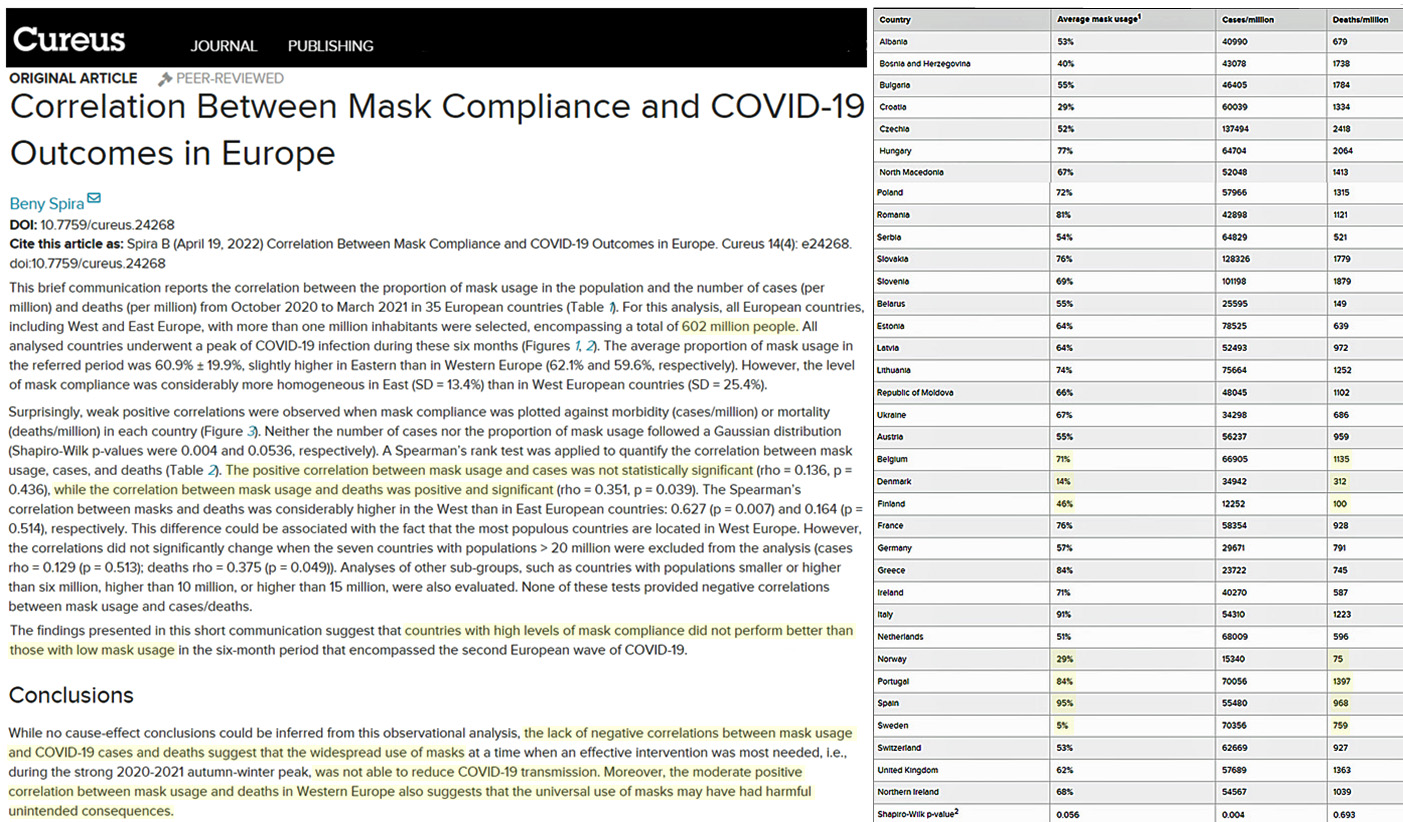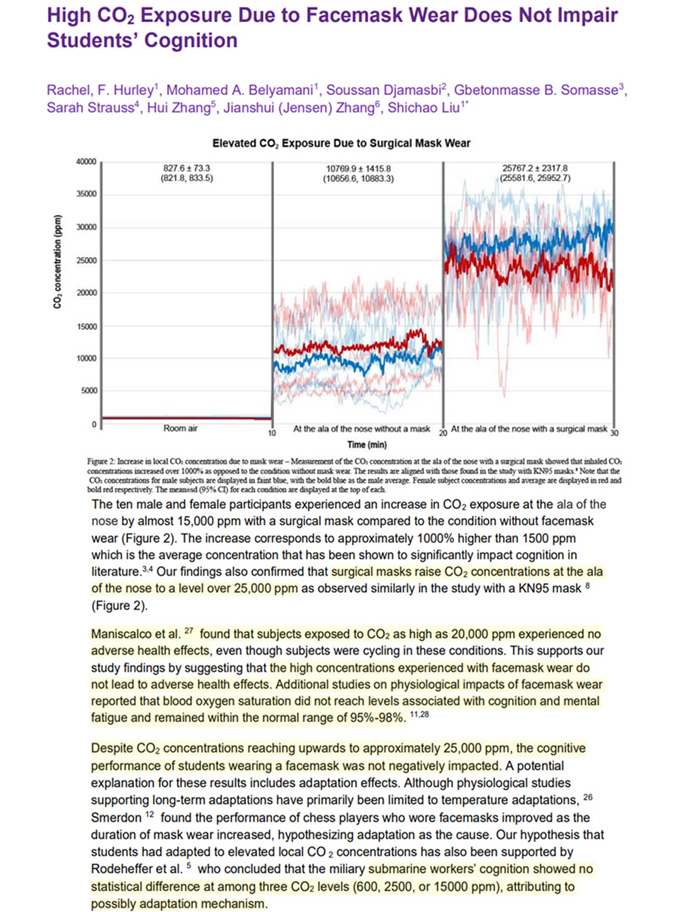The governmental need to portray elevated CO2 as dangerous to humans was recently pitted against the governmental need to require face masks be worn on healthy people.
During the height of the COVID-19 pandemic requiring healthy people of all ages to wear face masks in public settings became a common governmental policy – especially in Western Europe.
It was assumed at the time that wearing a surgical mask on one’s face in buildings, in crowded areas, on airplanes, at universities, etc., would prevent or reduce coronavirus transmission and death.
It did neither. In fact, the real-world data suggest that wearing a mask was positively correlated with both an increased risk of COVID-19 transmission as well as death across Western Europe (Spira, 2022).
“…the lack of negative correlation between mask usage and COVID-19 cases and deaths suggest the widespread use of masks…was not able to reduce COVID-19 transmission. Moreover, the moderate positive correlation between mask usage and deaths in Western Europe also suggests that the universal use of masks may have had harmful unintended consequences.”

Image Source: Spira, 2022
Throughout late 2020 and nearly all of 2021, the routine exposure to elevated CO2 (~25,000 ppm and up) for hours on end experienced by mask-wearers was apparently viewed as a smaller “necessary evil” relative to the assumed risk of contracting COVID-19 and potentially dying.
And now research (Hurley et al., 2023 [pre-print]) has determined that even in a warm indoor setting (a university), hours-long exposure to 25,000 CO2 from wearing surgical masks “does not negatively impact the cognition of university students.”

Image Source: Hurley et al., 2023
This research is further supported by a 2021 study (Maniscalco et al.) indicating people exposed to 20,000 ppm CO2 for prolonged periods also experience “no adverse health effects.”
So apparently the intended effects of 2020-’21 governmental mask mandates – a reduction of COVID-19 transmission and death – had no or the opposite effect, and the presumed negative effects associated with prolonged exposure to elevated CO2 levels while wearing a facemask also was never realized.





[…] Related: New Research: Prolonged Exposure To 25,000 ppm CO2 ‘Does Not Negatively Impact Cognition’ […]
This has been known about for decades an submariners.
Schaefer (1961) reported that 23 crewmen exposed to CO2 at 15,000 ppm for 42 days in a submarine showed no psychomotor testing.
CO2 has unfortunately transitioned (a woke term) from an essential gas for life (plant and animal) to a fear factor for humans, thanks to politics.
Ask one of these ‘greenies’ this simple question…’If CO2 is so dangerous,m why do Plants across the Planet grow better when CO2 is HIGH?’
AND…’If all CO2 is gone what will happen to Earth and all Life on it?’
[…] From NoTricksZone […]
J’adore ce site Web. Merci!
GTU
Wonderful post